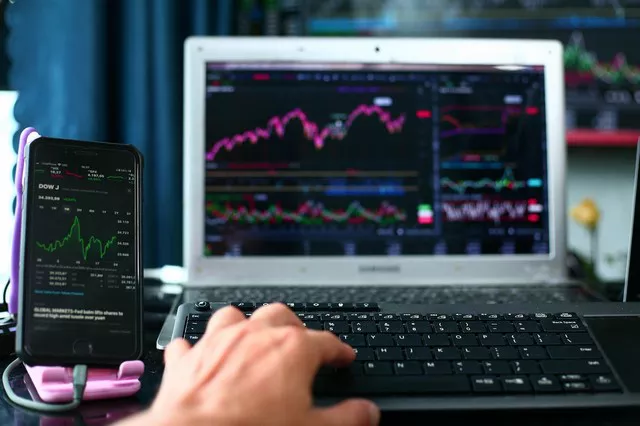In the realm of financial markets, few indices command as much attention and influence as the Dow Jones Industrial Average (DJIA), often simply referred to as the Dow. As a barometer of the stock market health in the United States, the Dow Jones Industrial Average tracks 30 significant stocks from various sectors. Investors and analysts closely monitor the movements of the Dow to gauge the overall market sentiment and predict future trends.
See Also: Dow vs S&P: Which is More Important?
What Are Dow Jones Futures?
Dow Jones futures, also known as DJIA futures or simply Dow futures, are financial derivatives that allow traders to speculate on the future direction of the Dow Jones Industrial Average. These futures contracts represent an agreement to buy or sell the Dow at a predetermined price at a specified future date. They provide investors with an opportunity to hedge against market volatility or to seek profits from price movements in the Dow without owning the underlying stocks.
How Do Dow Jones Futures Work?
Dow Jones futures operate based on the performance of the underlying index, the DJIA. When investors trade Dow futures, they are essentially betting on whether the index will rise or fall by a certain date. Futures contracts have standardized terms set by the exchange, including the contract size, expiration date, and tick size, which determine the contract’s value and trading parameters.
Factors Influencing Dow Jones Futures
Several key factors influence the movements of Dow Jones futures, reflecting broader economic and market conditions:
Economic Data Releases: Reports on GDP, employment figures, inflation rates, and consumer spending can significantly impact investor sentiment and influence Dow futures prices.
Corporate Earnings: The quarterly earnings reports of companies listed on the Dow can sway investor confidence and affect futures trading.
Global Events: Geopolitical tensions, international trade agreements, and global economic developments can cause volatility in Dow Jones futures as markets react to uncertainty.
Monetary Policy: Actions taken by central banks, such as interest rate changes or quantitative easing measures, can impact market liquidity and investor behavior in futures trading.
Trading Dow Jones Futures
Trading Dow Jones futures requires a solid understanding of market dynamics and risk management strategies. Here are some key aspects to consider:
Leverage: Futures trading involves leverage, allowing traders to control a large position with a relatively small amount of capital. While this can amplify profits, it also increases the potential for losses.
Volatility: The Dow Jones Industrial Average is known for its volatility, which can create opportunities for profit but also pose risks. Traders should be prepared for sudden price swings.
Market Analysis: Successful futures trading often involves technical analysis, fundamental analysis, or a combination of both to identify trends and make informed trading decisions.
Risk Management: Implementing risk management strategies, such as stop-loss orders and position sizing, is crucial to protect capital and manage exposure to market fluctuations.
Strategies for Trading Dow Jones Futures
Various trading strategies can be employed when trading Dow Jones futures, depending on individual risk tolerance and market outlook:
Trend Following: Traders identify and follow established trends in Dow futures prices, aiming to capitalize on momentum until the trend reverses.
Range Trading: This strategy involves identifying support and resistance levels in Dow futures and trading within these boundaries until a breakout occurs.
News Trading: Reacting to significant news events or economic data releases that can impact Dow futures prices, traders aim to capitalize on short-term price movements.
Spread Trading: Utilizing the price differentials between related futures contracts or indices to profit from relative value changes.
Conclusion
In conclusion, Dow Jones futures play a pivotal role in the global financial markets, providing investors with opportunities for profit and risk management. Understanding how Dow futures work, the factors influencing their movements, and various trading strategies is essential for anyone looking to participate in futures trading. Whether used for speculation, hedging, or portfolio diversification, Dow Jones futures continue to be a vital tool for market participants navigating the complexities of the modern financial landscape.
As you consider your investment strategies, staying informed about economic developments, monitoring market trends, and maintaining a disciplined approach to risk management will be key to navigating the dynamic world of Dow Jones futures trading.
FAQs
How does the Dow futures work?
Dow Jones futures work by allowing investors to buy or sell contracts based on the future value of the Dow Jones Industrial Average. These contracts specify a price at which the index will be traded at a future date. Investors use these futures to hedge against market risk or to speculate on the direction of the market. The value of Dow futures fluctuates based on the current and expected performance of the DJIA, influenced by various economic indicators, corporate earnings, and global events.
What is the difference between Dow Jones and Dow Jones futures?
The Dow Jones Industrial Average (DJIA) is an index representing 30 significant companies traded on the New York Stock Exchange (NYSE) and the NASDAQ. It reflects the overall performance of these companies and is used as a benchmark to gauge market health. On the other hand, Dow Jones futures are derivative contracts that derive their value from the DJIA. While the DJIA shows the current market performance, Dow futures allow investors to speculate on or hedge against future changes in the index’s value.


